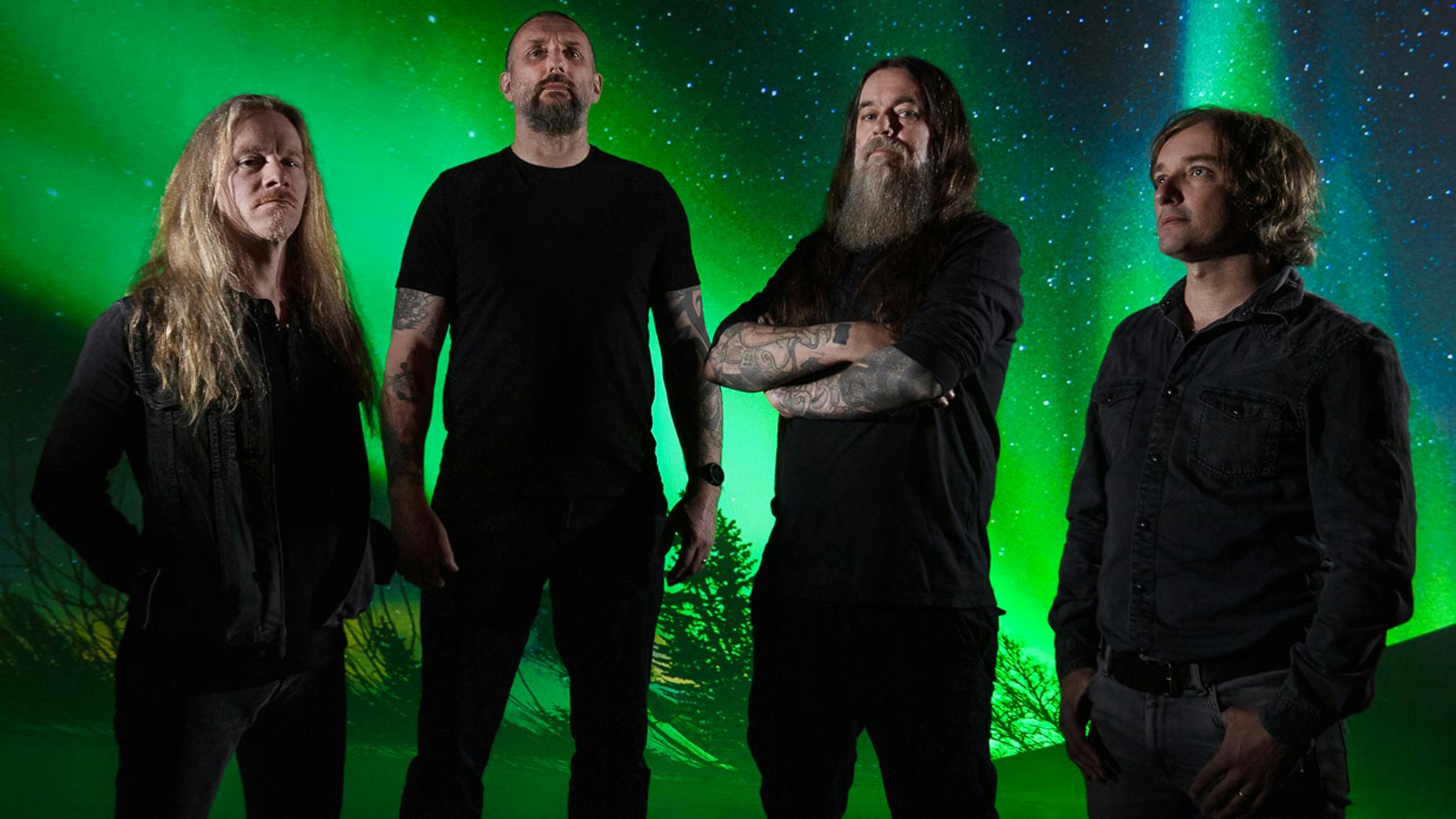"It's not rocket science, is it?" laughs Ben Ward.
Amid frantically packing ahead of the band's tour of Japan, Australia and New Zealand, Orange Goblin's burly frontman is explaining all about the British metal legends' freshly-announced 10th album, Science, Not Fiction. In particular, he's referring to its lead track, the self-explanatory (Not) Rocket Science, a full-Motörhead-ahead bit of classic Goblin heaviness, all riffs and bellows, that charges like a herd of stampeding elephants and roars like a truck. The title partly takes in writing a no-frills heavy metal rager, of which Ben and his band are longtime experts. It could just as easily be about the band themselves.
Almost 30 years in, in many ways the Goblin remain the same: a reliable heavy metal Land Rover, sturdy and true, packed with impressive power, a model of long-haul hardiness. But for those who see them as the grand old pissheads of British metal, songs about boozing to do some serious boozing to, Science, Not Fiction could surprise.
Musically, the trusty Goblin touchstones are all there, but they've also gone much further into the psychedelic bits that have so often touched the edges of their sound. New bassist Harry Armstrong (Hangnail, End Of Level Boss, Noisepicker, Blind River, replacing original bassist Martyn Millard), meanwhile, has slotted in without leaving a crack.
Having given up the drink and started seriously hitting the gym, Ben's explanation of the albums deeper themes might also prove unexpected. Most surprising, though, is the album's final track, End Of Transmission, which Ben openly says ponders on whether or not it might be the last one they ever write.
To fill us in as they prepare to blast off for a 10th time, we caught up with Ben to get the skinny on Orange Goblin 2024…
